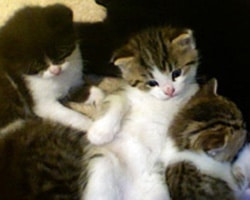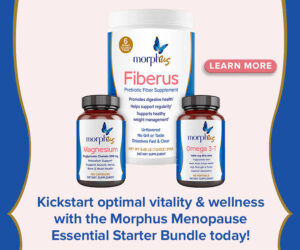
It is difficult to keep your eyes on kitty all the time. Anyone who owns a cat with a penchant for slipping through the screen door for some outdoor rendezvous will tell you it’s next to impossible to keep those furry felines fenced in.
That’s why it is important to make sure little Mittens and Snowball are neutered or spayed. Otherwise, chances are that sooner or later you’ll have a pregnant cat on your hands. If your favorite feline does become pregnant, consider taking the following measures to ensure a happy queen and a healthy litter.
You're Pregnant with … Kittens!
The typical cat pregnancy lasts more than two months, usually between 64 and 69 days. During this time there are many things you can do to keep your pregnant cat healthy.
First of all, consider what type of diet you are going to feed your cat. Just like humans, when a cat becomes pregnant she tends to eat more. A high-quality organic canned cat food along with an organic dry food is a typical diet that can have some positive effects.
As the pregnancy enters its fifth or sixth week, you may notice your cat’s appetite has increased considerably. At this point, it becomes important to give your cat all natural and/or organic kitten food. This type of food will give a boost in nutrients which she and her gestating litter will need in the final weeks of the pregnancy and once she begins to nurse the kittens after they’re born.
Cats that suffer from a lack of calcium in the bloodstream run the risk of developing Eclampsia, a life-threatening disease which usually occurs during the final stages of pregnancy and into the nursing period. Prevent this disease by giving your cat a calcium supplemented diet. Feed her a high-quality organic kitten food containing high amounts of calcium and protein.
Prevent Pesky Ticks
Controlling fleas on one indoor-outdoor cat can be tricky enough on its own, but once your cat gives birth, you’ve got half a dozen felines collecting ticks and fleas. It is important then to make sure your queen is flea-free before she gives birth, or she risks passing the pests onto her newly-born litter.
If your queen does get fleas, you’ll have to read the labels when choosing a flea-control product. It is very important to avoid products with insecticides, as they can be harmful to your cat and her litter. If you see the word Organophosphates on a flea control bottle, this is your cue to avoid this product. This insecticide can get into the mother’s milk and bloodstream, and eventually can harm the kittens. There are many natural and organic products available that do not contain Organophosphates, which are considered safe to use on both pregnant or nursing cats. Consult your veterinarian for some healthy brands.
The least intrusive method of flea-control is simply combing the pests out. For this, use a flea comb that has been dipped in soapy water as this will increase the effectiveness of killing the ticks. If your kittens do happen to get fleas from their mother, don’t use any flea control product. Kittens are very sensitive to any medication, natural or otherwise, and it is best to directly pick the fleas out with tweezers.
Kittens Galore!
Once your kittens are born, you need to figure out what to feed them. Mother’s milk will be the litter’s primary source of nutrition for the first eight weeks. It is therefore necessary for the growing kittens to stay close to their mother during this time. Adoption works best about 10 weeks after the kitten’s birth.
There is no need to supplement the kitten’s diet in the initial stage (the first eight weeks), unless for some reason the mother is refusing to feed one or more of her kittens. In this case, you will want to begin feeding the neglected newborn(s) a kitten milk replacer (KMR). There are some organic and natural KMR’s on the market that are designed to mimic the mother’s natural milk and provide the necessary nutrients to the kittens.
Between six to eight weeks old, your kittens will begin to take interest in solid food. Do not worry if the smaller kittens take longer to eat solid food than others, as this food change is based on size. You will want to begin feeding them a high-quality organic kitten food as they are weaned off of their mother’s milk
It is very important to consult your veterinarian if you have any questions or doubts when it comes to caring for your pregnant queen.










